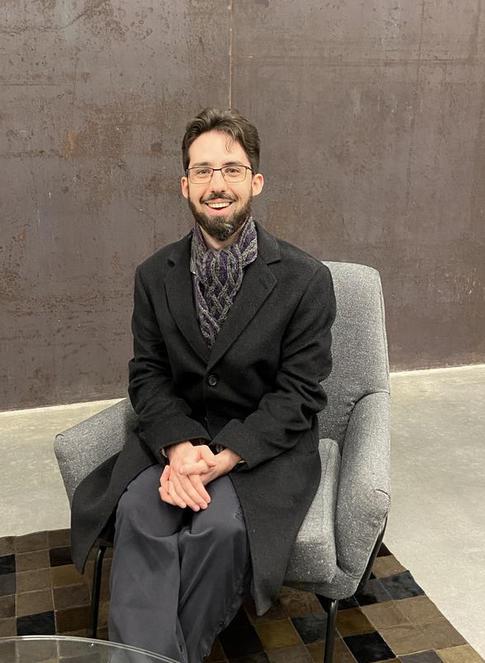A Brief Q&A with Author Mekiya Outini
An excerpt from Outini’s novel, Ashes, Ashes, is forthcoming in the Fall 2022 collection of Online Exclusives available in early September 2022.
Mekiya Outini holds an MFA in fiction from the University of Arkansas, Fayetteville, and a BFA in creative writing from the UNC Wilmington. He’s placed fiction in Chautauqua, The Write Launch, and Sunspot (the last awarded him their 2020 editor’s prize), and his nonfiction has appeared in ABILITY Magazine and is forthcoming in the Michigan Quarterly Review. He’s also published poetry.
WTR: How did your piece come to be and what do you want our readers/audience to know about your work?
MW: I moved to Northwest Arkansas for grad school in 2015 and lived there for seven years, and the longer I stayed there, the more it struck me just how underrepresented the region remains in American letters. It’s strange. There’s an MFA program, an international literary magazine (albeit recently minted), a great deal of wealth and industry, and a major outpost of the international education system, all in Northwest Arkansas—it’s even where the Fulbright was founded!—and yet the place is practically invisible in cultural narratives, at home and abroad. That means a lot of fascinating stories are going untold.
The only novel I’ve come across that captures anything about the essence of the place is John Englehardt’s Bloomland, which is an excellent book, but doesn’t feature any international characters. I met people from all over the world in Arkansas, including my life partner, who’s an asylee in the US, originally from Morocco, and I wanted to write something that explores how Americans and foreigners collide in places like NWA. (That’s where the story goes next: Chapter III introduces Farah, who’s from Egypt, and her circle of friends.) I also wanted magical realist elements to bind the novel together since magical realism is rooted in narrative traditions the world over, including American Southern Gothic fiction, and lends itself to really nuanced psychosocial commentaries. The ghosts and supernatural entities in Emma’s arc, for instance, are a way of talking about intergenerational trauma, and spontaneous human combustion in Silas’s asks what it means to label any trauma “spontaneous,” detached from its history.
I started writing Ashes, Ashes after finishing my MFA in 2019. Then the pandemic came along, and I quit my job at a grocery store, despite having little in savings and no idea how I’d pay rent or buy food, and turned to writing fulltime. In retrospect, it’s all worked out shockingly well. I finished the fourth draft in November of 2021, and I’m now working with my partner, Itto Outini, on her memoir, which tells how she was blinded by a family member at the age of seventeen, weathered six years of homelessness, fought tooth and nail for her late-start education, and eventually became a Fulbright scholar. We also plan to co-author a second volume, which will cover her time in the States and feature both our voices, and we’re seeking representation for all these projects.
WTR: What was the last book, story, poem, work of art that moved you?
MW: This changes every few months, so my answer may be different by the time this goes live, but Emma Ramadan’s English translation of Kamel Daoud’s Zabor, or The Psalms comes to mind. Daoud uses magical realist elements to explore the constraints and possibilities of different languages—Afro-Asiatic, Indo-European, and Semitic; colonial and indigenous, written and spoken—as meaning-making, even world-making systems. The novel is poetic and sensory and, thematic and linguistic innovations aside, fundamentally character-driven. The narrator’s marginalization, his neuroses, and his creative, life-sustaining capacities are all entangled, practically at the quantum level, to the point that basic conceptual and moral taxonomies start to dissolve, which opens up whole new realms of possibility. I read it this spring. It resonated with me as an instance of the kind of art I hope to make.
WTR: Anything you’d like to say to our readers/audience?
MW: Yes. Cultural appropriation. It’s a real problem with tangible consequences that have to be dealt with so that creators who’ve been historically marginalized can make their voices heard, but locking writers into identity silos is not a sustainable solution. Yet it’s one that large swaths of the literary world seem to be embracing.
Maybe I’m viewing this cynically, but based on what I’ve witnessed in my BFA and MFA programs, I think the practice of writing across identity lines may be accruing stigma, in part, because representing characters from backgrounds other than one’s own, depicting their nuance, depicting them well, really is hard. It requires research and perspective-taking, vulnerability and conversation and connection, and a lot of people who’re privileged enough to find themselves entangled in the higher education system don’t feel qualified to do that work. Maybe they feel trapped inside the ivory tower. Maybe they’re keenly aware of the fallout that might come from clumsily portraying an Other. And maybe that makes it all too easy to embrace the idea that writers should write only what they know, defined in the narrowest possible way.
Okay. Understandable. But that’s a path we can’t afford to take. We can’t afford to stigmatize perspective-taking and imagination. These are indispensable tools if we want to remake our dysfunctional worlds, especially if we want to remake them more justly. That’s a principal function of art, after all: sustaining and renewing our worlds. And given how many global catastrophes are presently unfolding, and how badly we’ll all need to stay alert and grounded and connected as we weather these storms, I don’t think we can afford to give up art, imagination, and perspective-taking methods just now.
__________________________________________________________________________________________________________________________________________________________________________
__________________________________________________________________________________________________________________________________________________________________________
__________________________________________________________________________________________________________________________________________________________________________
__________________________________________________________________________________________________________________________________________________________________________
__________________________________________________________________________________________________________________________________________________________________________
©2022 West Trade Review
Stay Connected to Our Literary Community. Subscribe to Our Newsletter



